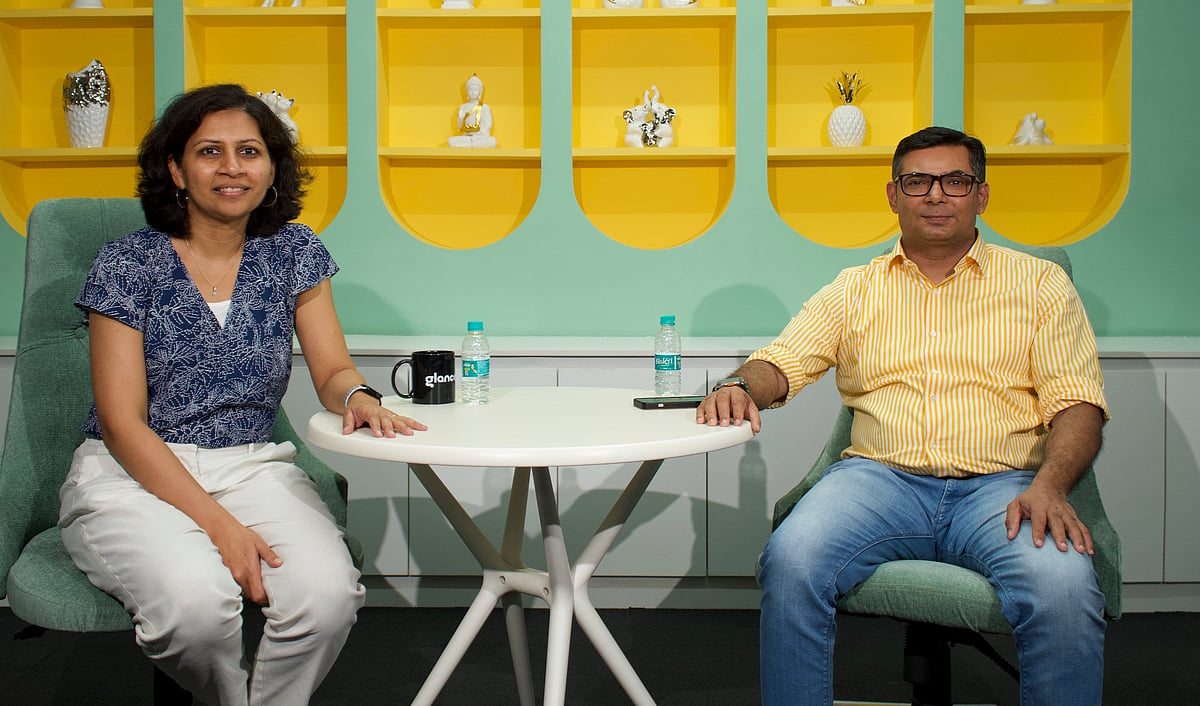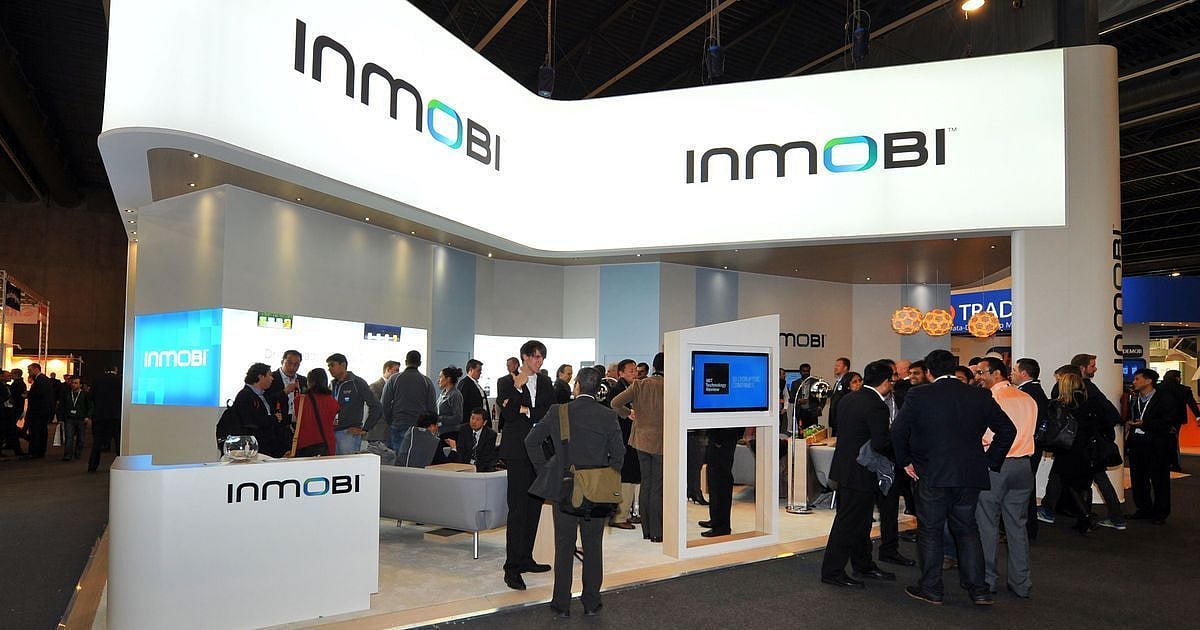Founded in Bangalore in 2007, InMobi is a mobile-first platform that allows brands, developers and publishers to engage consumers through contextual mobile advertising.
InMobi became Indian’s first unicorn startup in 2011. Today, it functions in 12 different countries around the globe, employing over 2,500 people.
Vasuta Agarwal joined InMobi in 2012 and has been with them for the past 12 years. Over her career stint with the unicorn, she has moved from product management to revenue and partnerships and today is their Chief Business Officer.
Gautam Shelar is the Co-Founder of KarmaPlay, a knowledge-based trivia platform and Founder of Pistis Consulting. He has over 20 years of industry experience and has been the CEO of MoneyControl and Revenue Head at TOI.com. In conversation with him, Vasuta talks influences, making big career switches, building a high-performing team and her journey with InMobi.
Edited excerpts from the conversation…

Tell us about your career and making the move to InMobi.
I joined Intel just after getting my degree in electronics engineering. I worked on coding, digital circuits, chip design and so on. It was interesting but in about 12 to 18 months, I started to wonder if it would keep me very engaged.
I looked at my mentors and bosses and did not see myself in their roles. So I started preparing for an MBA and scraped through in my second attempt. My MBA experience at IIM Bangalore exposed me to life beyond engineering. Post that, I interned at Goldman Sachs but didn't get a pre-placement offer from them as 2009 was right after the financial crisis.
Life was stressful in that one year and then McKinsey happened. My three years at McKinsey were phenomenal. I didn't know what I was getting into, but consulting gives you a huge breadth of experience.
One day you're working with a government client, the next with a finance or manufacturing client and you’re forced to push your boundaries. There is a huge breadth of experiences and you have to assess a lot of information. It also gave me the realisation that, at any level, people appreciate authenticity.
My InMobi move was a little bit of a combination of professional and personal reasons. In consulting, you’re doing something for six to nine months and then moving to the next project. It didn't give me that sense of satisfaction or fulfillment you can get from really seeing something through. I wanted to really own something end-to-end.
What made you want to work with InMobi?
When I joined InMobi, they had just raised a huge amount of funding from SoftBank. They were in a super fast growth phase and were looking to hire people to help with that growth. A consulting company equips you with some of those skills - how to operate in a high paced environment, learn and still produce outcomes.
What really resonated with me was that we were trying to build this technology powerhouse from India for the world. At InMobi, I worked in product management for seven-eight months and then moved into business development which was managing client facing partnerships and revenue. I was fortunate that I could experiment in different roles and really find something I liked.
What was InMobi’s monetisation strategy at the time?
InMobi has Software Development Kits (SDK) for ads and monetisation that we distribute to app developers. Our competitors were giants like Google and Meta and other gaming specialised companies. So, there was a fair bit of competition.
We went in with a plan to choose the segments and markets we want to go into. I think prioritisation is important with a B2B product. So we doubled down on our gaming clients and penetrated the US and Europe, which are very big markets from a monetisation lens. In summary, it is about focusing and identifying a core segment, capturing it and then moving on to the next.
Another thing we focussed on was the pitch. In any business, you need to understand where the decision making lies when it comes to cracking a pitch. The solution that you have needs to click with them and be a little differentiated. We invested in educating key agencies in product education and platform awareness.
How did you build a strong, high performing sales team?
We worked on onboarding people who didn't have media experience, but would be good at product understanding, data and analytics. They also needed to have the ability to communicate well with clients.
A goal setting and incentive process is a very key part of any high performing sales team. The goals you set while aggressive should also be within the realm of achievement. People should feel motivated to get to it and be supported.
.png)
What are some characteristics of a good salesperson?
There's a notion that a good salesman is flamboyant, a fast talker or can ‘sell ice to an Eskimo’. But the truth is actually different. I think client communication and presence is a given. Some of the best people I've seen actually appear very quiet but have the ability to connect with people.
A big part of that also comes from being a good listener. Because if you don't understand what the client is looking for, you'll pitch your product, try and force fit something, and it's never going to close.
Even if something doesn’t close in the first meeting, at least establish a connect and get a follow up. If the client is willing to meet you a second time, that in itself is a win.
Tell us about InMobi’s journey going global.
Trying to go global from India is not easy. We’re not a B2C company so its not just about user level branding. You need to establish your presence with B2B customers. What helped us was finding strong local leaders. Hiring the right people, then making sure our product works and, of course, a certain amount of marketing.
As we established our presence in these markets, we invested in trade events and PR. Customer referrals and testimonials play a huge role when you're trying to establish yourself in newer markets. It is not an overnight journey. It is a series of small steps. And it takes time.
We've been around for about 16 years and it has not been a linear growth. We reached an inflexion point and from there had exponential growth.
Android and iOS started to became big around 2009 to 2012. That was great for us because we were trying to transition from SMS into something like this. We also raised funding at that time, which really helped fuel the growth. It was a combination of the right confluences of things.

What advice would you give someone just out of B-school?
One, state your goals and your ambitions. Two, continuously step outside of your comfort zone - your growth will come from that. And thirdly, for women, it's absolutely important to have a support system at home and in the workplace, because that's the only way you can manage a career.
The full podcast is available on YouTube @SellSideConversations
.png?width=1200)




.png)





